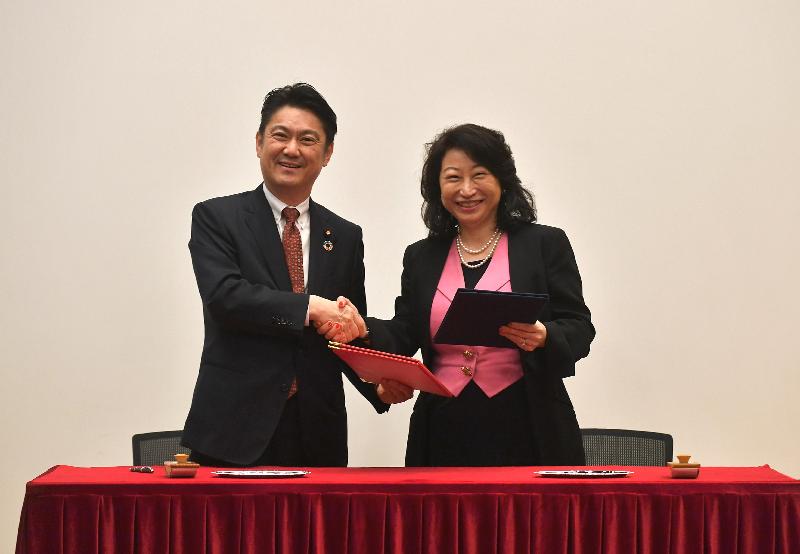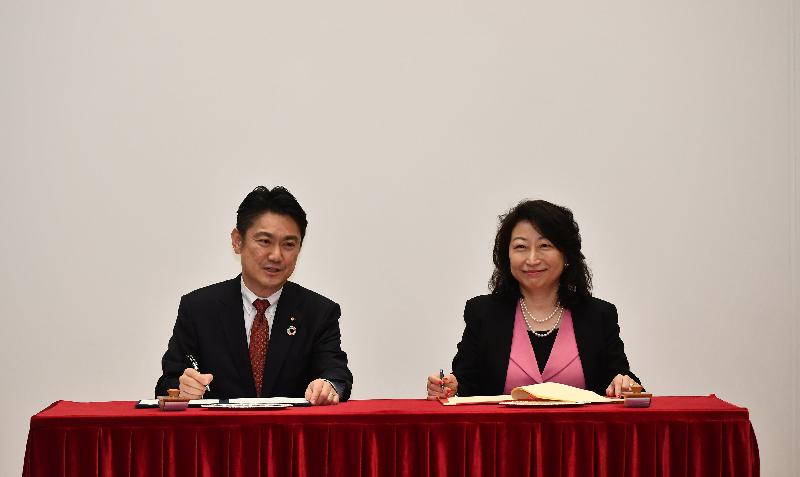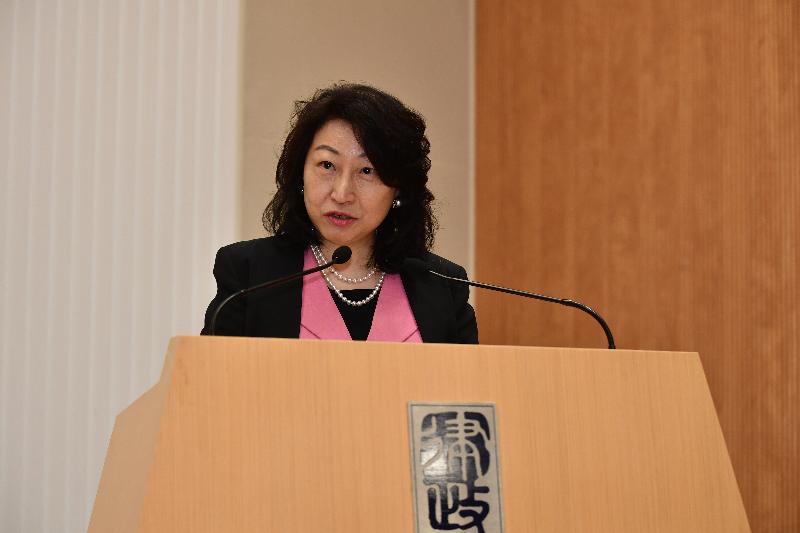LCQ14: Road safety of non-franchised buses
Following is a question by the Hon Ho Kai-ming and a written reply by the Secretary for Transport and Housing, Mr Frank Chan Fan, in the Legislative Council today (January 9):
Question:
On November 30 last year, a serious traffic accident involving a non-franchised bus happened on Cheung Tsing Highway in Tsing Yi, causing six deaths and some 30 persons injured as well as arousing public concern. The Transport Department subsequently held a meeting with the trade in respect of the road safety of non-franchised buses. In this connection, will the Government inform this Council:
(1) of the number of traffic accidents involving non-franchised buses in each of the past three years, with a breakdown by type of accidents;
(2) of the progress of the authorities' work on formulating guidelines on the working hours, rest times and meal breaks for non-franchised bus captains; and
(3) whether the authorities will take measures (e.g. stepping up law enforcement) to improve the road safety of non-franchised buses; if so, of the details; if not, the reasons for that?
Reply:
President,
The Government attaches great importance to road safety and has been adopting a multi-pronged approach to enhancing the road safety of non-franchised buses (NFBs). My reply to the various parts of the Hon Ho Kai-ming's question is as follows:
(1) The number of traffic accidents involving NFBs each year from 2016 to November 2018 by the degree of severity is tabulated below:
| Number of accidents | |||
| Fatal | Serious | Slight | |
| 2016 | 6 | 43 | 388 |
| 2017 | 8 | 40 | 391 |
| 2018 (January to November)* |
4 | 28 | 338 |
* Provisional figures
(2) and (3) The Government has been adopting a multi-pronged approach to enhancing the road safety of NFBs. On law enforcement, the Police have been taking stern and vigorous enforcement actions in recent years to combat improper driving behaviour. To this end, roadside equipment such as red light cameras and speed enforcement cameras as well as mobile instruments such as laser guns, are used for enforcement actions. At the same time, the Police are taking enforcement actions according to the "Selected Traffic Enforcement Priorities" (such as operations that target speeding, use of mobile phones/telecommunications equipment while driving, drink driving, drug driving, etc.). In addition, the Police take regional and territorial level traffic enforcement actions regularly with a view to reminding motorists to stay alert, reducing the risk of traffic accidents and enhancing road safety.
Apart from enforcement, the Government also joins forces with the Road Safety Council to launch publicity and educational activities on a regular basis, and produce announcements of public interest (APIs) and publications targeting motorists (including drivers of commercial vehicles) for the promotion of road safety. For example, a new API on television recently produced reminds motorists to "always concentrate when driving" and "stay alert while driving". Every year, the Transport Department (TD) organises the Safe Driving and Health Campaign, and produces pamphlets such as Road Safety Bulletin and Non-franchised Bus Bulletin to provide motorists with comprehensive road safety information to enhance their understanding of matters on road safety that require attention. The TD also collaborates with the Police in holding regular Road Safety Seminars for Franchised and Non-franchised Bus Captains, at which police officers are invited to give bus captains of franchised buses and NFBs tips on safe driving and analyse causes of traffic accidents so as to enhance the road safety awareness of bus captains and promote good driving behaviour.
In addition, the TD holds meetings with the NFB trade regularly to discuss matters on the trade's operation, including operational safety. In response to the recent traffic accident involving an NFB, the TD held a special meeting with the trade on December 5, 2018 to discuss ways to enhance operational safety of NFBs, including installing and providing safety devices on NFBs, applying technologies to enhance operational safety, and drawing up guidelines on working hours and rest times for NFB drivers, etc.
Regarding seatbelts, the major NFB operators have been purchasing new buses equipped with seatbelts in recent years. The trade also supports enacting legislation to compulsorily require newly registered NFBs to be fitted with seatbelts. The TD will review the suggestions on installing seatbelts on NFBs and requiring passengers to fasten seatbelts. Consideration will be given to various factors, such as safety benefit, technical feasibility, overseas practices, as well as impact on vehicle operation, passengers and the trade, and views from stakeholders, etc.
At the said meeting, the TD also suggested that the NFB trade should install other safety devices on vehicles and use technology to enhance safety, including speed limiter, tachograph (commonly known as "blackbox") and electronic stability control system. The trade was in support of these suggestions, and would proactively consider installing relevant devices when procuring new buses. Where actual operational condition permitted, the trade would be willing to introduce a bus driver monitoring system (for example, collision prevention alert system) to some NFBs for testing purposes. The TD will offer assistance and advice in that regard.
Meanwhile, the TD has been attaching great importance to the occupational health of NFB drivers, and urging the NFB operators to ensure not only operational safety of NFBs, but also a good balance between work and rest for their drivers to avoid fatigue driving. As regards formulating guidelines on the working hours, rest times and meal breaks for NFB drivers, the trade has agreed to the proposal in principle. Since NFB operation involves different types of services, mainly providing hire services based on the demand of specific passenger groups, the trade considers that the formulation of the details of such guidelines should take into account the existing mode of operation of NFBs. The trade has pledged to continuously engage in further discussions with the TD with a view to formulating and implementing relevant guidelines as promptly as possible.
In order to follow up on and expedite the implementation of the above specific measures for enhancing NFBs' operational safety, the TD will set up a special working group under its regular meetings with the NFB trade to further discuss and follow up on the aforementioned matters. The working group will hold its first meeting in mid-January 2019.


